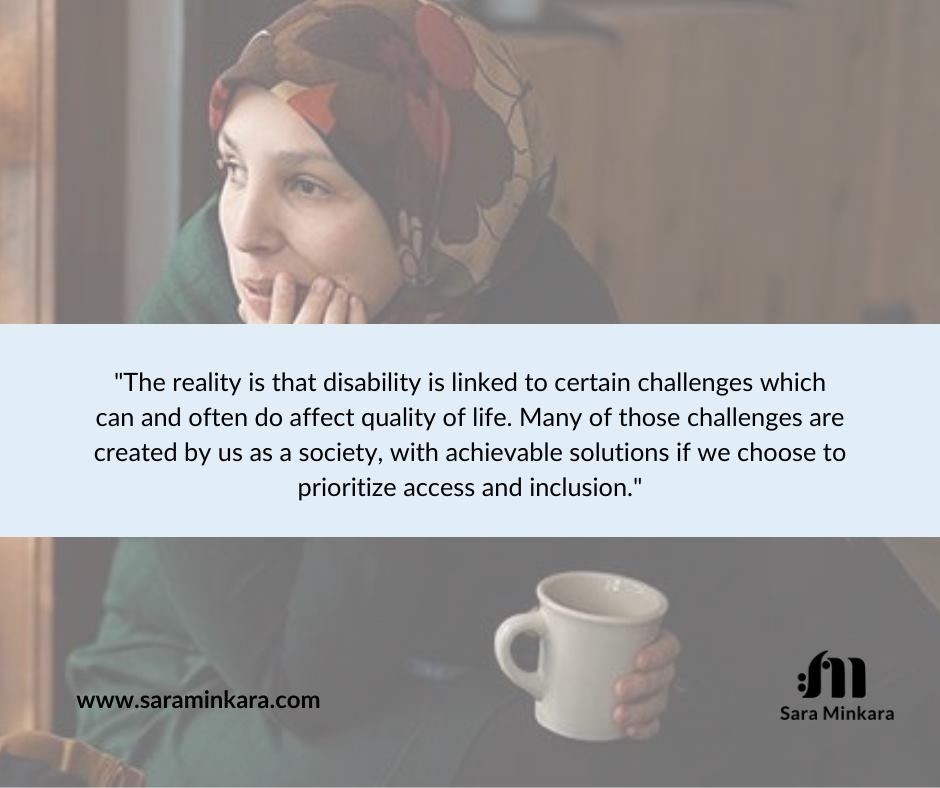Are PWDs More Likely to Experience Mental Illness?
People notice that I am blind when they first meet me. And just as we all tend to make assumptions when we meet new people, when someone first meets me, assumptions tend to follow. But those assumptions are often related to my disability. It must be so hard to go through life missing out on all these experiences, they imply, or sometimes even say explicitly. Good intentions do not soften the blow of ignorance; people without disabilities rarely consider the value, much less the beauty, of experiencing the world from my perspective. Why are differences so often considered deficiencies? Having a disability does not mean living a partial or unfulfilled life.
The reality is that disability is linked to certain challenges which can and often do affect quality of life. Many of those challenges are created by us as a society, with achievable solutions if we choose to prioritize access and inclusion. According to a 2018 study by the Centers for Disease Control and Prevention (CDC), adults with disabilities reported mental distress at a rate of up to 4.6 times more than their non-disabled peers. And an estimated 17.4 million adults with disabilities experience “frequent” mental distress. But these statistics aren’t attributable to inherent dissatisfaction with life due to the fact of their disabilities, but rather with the limitations imposed by social and policy choices that create special challenges. There is no place in this world that is truly, fully inclusive. Some cities, countries, or places of business have achieved relative success. But there are quantifiable outcomes of the decisions that deprioritize inclusion and access for PWDs, including a lack of PWD representation in design and decision making processes. According to the study, PWDs experience higher rates of mental illness exacerbated by factors such as unemployment, poverty and limited access to healthcare, including mental healthcare.
Mental health is not static; at certain periods in life, and with specific precipitating factors, an individual is more likely to face mental illness. In any given month, about 18% of workers in the U.S. report having a mental health condition, according to the ADA. This makes mental health disabilities one of the most common types of disability covered under the ADA. And this may be an understatement. Stigma is a pervasive challenge, and researchers report that most study participants with mental health conditions do not share their disability status with coworkers. In fact, many recommended not disclosing mental health related struggles to anyone at work.
The intersectionality of disability and mental health poses a unique challenge. Common access issues like communication and transportation barriers can severely compound challenges to competent mental health care for PWDs along with systemic complications like provider biases related to stigma and ableism. These complications can inhibit proper care, in part through failure to identify and treat mental illness in PWDs. Even healthcare providers are not immune from internalizing the perception that disability is a “defect” rather than an equally valid dimension of difference, and that PWDs are deserving and capable of living full and fulfilling lives.
With any disability, whether physical, mental or both, we all deserve to have our basic needs met. Yet any disability increases the likelihood of additional and significant hurdles to getting those needs – including mental healthcare needs – met. And the struggle or failure to meet those needs can in turn result in further isolation and exclusion. But we can change this. When PWD are prioritized, access and inclusion ultimately benefit everyone. Equal access to proper services is a right, and the cornerstone to building a healthy and inclusive society. Because we all have value, and when everyone is included, everyone benefits.


